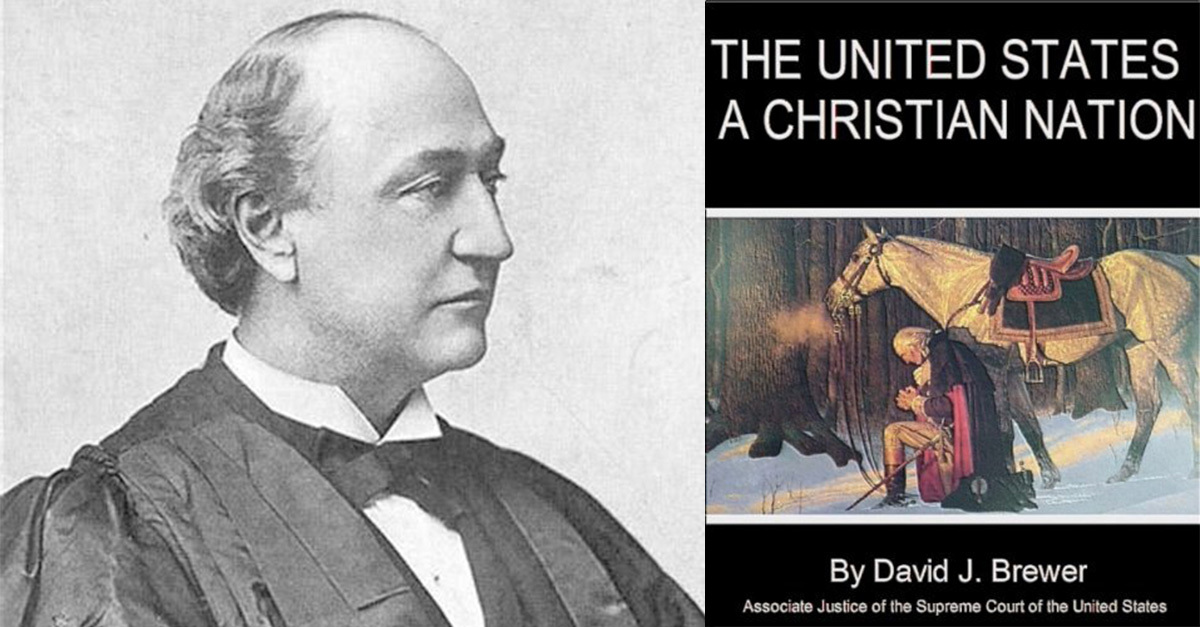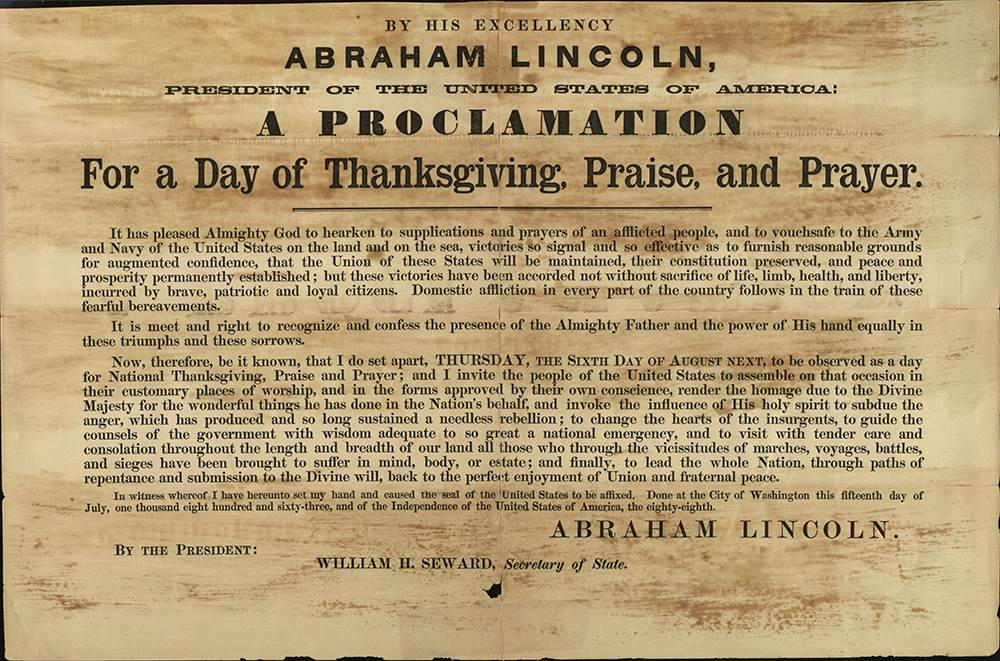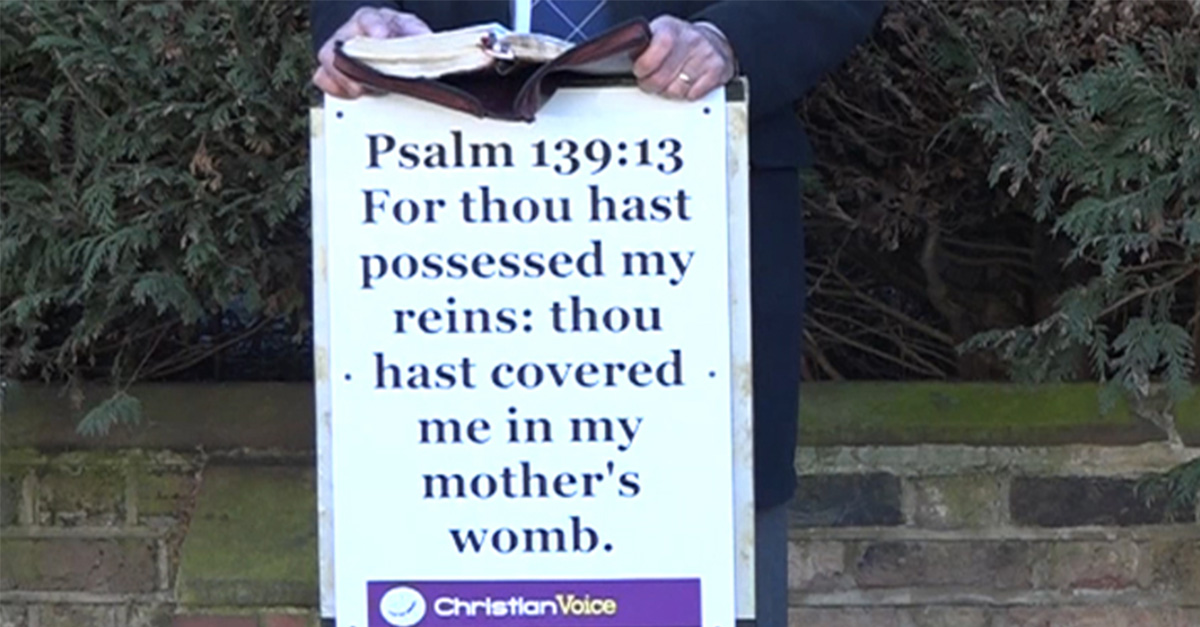


Get a free copy of Parental Rights & Education when you subscribe to our newsletter!

Keen observers over more than two centuries credit America’s greatness to its adherence to the moral law and Christian principles, with Justice David J. Brewer stating that Christianity “has so largely shaped and molded” the United States that “today of all the nations in the world it is the most justly called a Christian nation.”
On February 29, 1892, the Supreme Court declared in its ruling in Holy Trinity v. United States: “The historical record of America overwhelmingly demonstrated that the United States is a Christian nation.”
Ironically, these judges did not begin issuing these anti-religious rulings until the late 20th century, suggesting that these rulings are not driven by law but by culture and that they are reflective of an activist judicial philosophy seeking to establish a new foundation for American law on a subjective, inconsistent basis.
This approach ignores centuries of legal precedent that did establish an important role for Christianity not only in terms of private exercise but also in the public square.
On examining the First Amendment, we can see that the Establishment Clause merely says that “Congress shall make no law respecting an establishment of religion,” while the following Free Exercise Clause states, “or prohibiting the free exercise thereof, or abridging the freedom of speech, or of the press, or the right of the people peaceably to assemble, and to petition the Government for a redress of grievances.”
Together, these clauses were intended to promote religious freedom by declaring that America can’t legally enshrine a national religion and also by preventing any legal limits on the ability of Americans to freely exercise their religion, not just privately but publicly as well.
Stanford University’s Michael McConnell, a senior fellow at the Hoover Institution, as well as a former judge on the U.S. Court of Appeals for the 10th Circuit, argues in his new book Agreeing to Disagree that the framers crafted both clauses to “enhance freedom of conscience at an individual level because there would be less likelihood of government coercion, but also that it would bring about more civic peace and harmony than if we are constantly engaged in trying to make sure ‘our side’ wins these conflicts. To put it plainly, we are supposed to agree to disagree.”
In other words, both clauses exist in tension but still ensure the peaceful exercise of religious freedom in America.
The arguments presented by McConnell are backed by decades, if not centuries, of prior American legal and constitutional interpretation. U.S. Supreme Court Justice John McClean, one of the few to serve in all three branches of federal government, once wrote that “our mission of freedom is not carried out by brute force, by canon law, or any other law except the moral law and those Christian principles that are found in the Scriptures.”
In Commentaries on the Constitution of the United States, penned in 1833, former U.S. Supreme Court Justice Joseph Story observed that “every American colony, from its foundation down to the revolution…did openly, by the course of its laws and institutions, support and sustain in some form, the Christian religion; and almost invariably gave a peculiar sanction to some of its fundamental doctrines.”
On March 30, 1863, U.S. President Abraham Lincoln issued a Thanksgiving Proclamation that designated and set apart “a day for National prayer and humiliation,” wherein he “devoutly” recognized “the Supreme Authority and just Government of Almighty God, in all the affairs of men and of nations.”

In what was an equally, if not even more significant, statement, America’s first president, George Washington, recognized the role of the Christian faith in his 1789 Thanksgiving Proclamation, stating:
“Whereas it is the duty of all Nations to acknowledge the providence of Almighty God, to obey his will to be grateful for his benefits, and humbly to implore his protection and favor…”
In his 1905 book, The United States: A Christian Nation, Supreme Court Justice David J. Brewer detailed how even though the Establishment Clause of the First Amendment forbids the establishment of an official religion, the United States is still a Christian nation.
Specifically, Brewer argues that America is Christian in its identity not because it is the state’s established religion or because individuals residing within the country are compelled to support it or because Christianity is a requirement to hold public office, perform public service, or is essential to political or social recognition.
Rather, he stated, America is a Christian nation because the foundational truths of the Christian religion were a “principal cause” of the settlement of the American colonies and has been “identified with the growth and development of those settlements into the United States of America.” Moreover, he stated, because Christianity has “so largely shaped and molded” the American nation “that of all the nations in the world today, it is most justly called a Christian nation.”
According to Brewer, America’s identity as a Christian nation fits firmly within the constitutional limits imposed by the Establishment Clause, as well as the Free Exercise Clause.
Furthermore, Stephen Colwell, an American businessman and philanthropist, argues in his 1854 book, The Position of Christianity in the United States, that
“it was in the very spirit of true Christianity that the hospitality and blessings of the United States were offered to all the world… the Christian men of that day did not intend to lessen their own privileges or religious freedom by yielding those rights to others, nor to diminish the proper authority of Christianity in the land; they intended that the nation should continue to be a Christian nation, that Christian morality should still pervade its legislation and social system, and that Christianity should continue to have a home here during the life of the nation.”
And Justice Story writes in A Familiar Exposition of the Constitution of the United States, published in 1840, that “it is difficult to conceive how any civilized society can exist without … promulgations of the great doctrines of religion, the being, attributes, and providence of one Almighty God, the responsibility to Him for all our actions, founded upon moral accountability; a future state of rewards and punishment, and the cultivation of personal, social, and benevolent virtues.”
Perhaps most importantly, Story concludes that it is “impossible for those who believe in the truth of Christianity to doubt that it is the special duty of government to foster and encourage it among all of its citizens, (and) this is a point wholly distinct from the right of private judgement in matters of religion and of the freedom of public worship, according to the dictates of one’s conscience.”
In conclusion, the historical precedent is clear that America was both founded and intended to exist as a Christian nation. This is true not in the sense that Christianity was to be the official religion of the land, which the Establishment Clause expressly forbids, but in the sense that the nation was founded and shaped by the values and principles associated with biblical Christianity — and those same values do not change with time.
With this in mind, the status of America as a Christian nation is not in conflict with either of the First Amendment clauses. The conclusions of the aforementioned authors only add to that of so many other keen observers that the role of the Christian faith in the life of the country is a completely separate matter from the constitutional mandate that prohibits it from being the established state religion.
The historical record is inescapable. It is the activist judges and secular influencers of today declaring that America is not a Christian nation who are on the wrong side of history — not the millions of Americans with deeply held Judeo-Christian values who want to return it to what the Founders intended. America was founded to be a Christian nation, one that recognizes the sovereignty and grace of a merciful God and one that benefits from the Christian doctrines of free will, the moral law, selfless service to others, and redemption.
Interested in pursuing a fully accredited biblically-based education? Liberty University has been training students to serve as “Champions for Christ” in their respective professions across the industry spectrum for over 50 years. With over 350 residential academic concentrations, 20 NCAA Division 1 athletic programs, opportunities to serve domestically and abroad, and an unapologetic Christian worldview, your experience at Liberty University will provide an education that roots you in truth and allows you to learn, grow, and impact the culture for Christ. Apply now!

Notifications